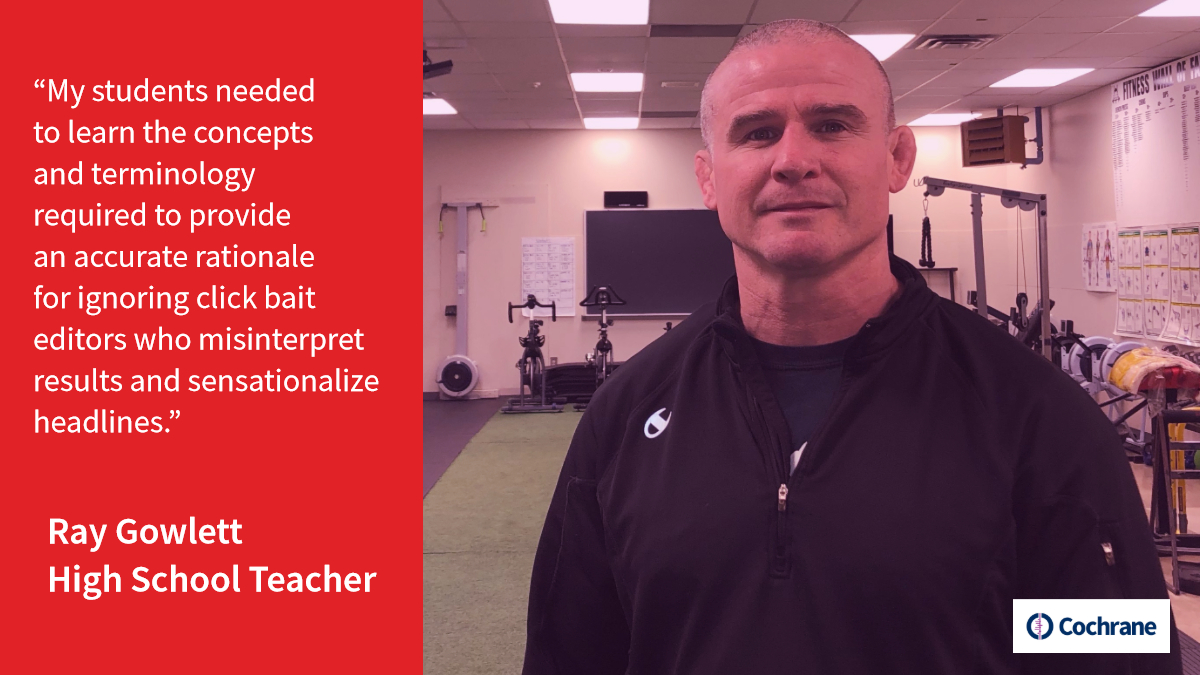
Cochrane does not make clinical recommendations, instead it provides unbiased and high-quality health evidence so that health decisions, policies, and clinical guidelines can be informed by the best available evidence. 'Cochrane in the workplace' series collects stories about how Cochrane evidence is being 'put to work' in non-clinical settings - by teachers, by guideline makers, and by policy makers.
High School teacher, Ray Gowlett's story of using Cochrane evidence:

Ray Gowlett
Physical Education High School Teacher
Central Algoma Secondary School
Algoma District School Board
@raygowlett
"I'm a physical education teacher at a high school outside of my small hometown of Richards Landing, Ontario, Canada. When teaching about nutrition, many students would make claims of ‘research says this’, and ‘research says that’. I had to teach my students how to analyze the primary research that lead to the recommendations in the first place. My students had to be taught to think critically and evaluate evidence for themselves. They needed to learn the concepts and terminology required to provide an accurate rationale for ignoring click bait editors who misinterpret results and sensationalize headlines.
In order to learn about how to read and understand evidence, I had to go outside of the world of education. As luck would have it, I ran into a retired emergency medicine doctor, Dr. Roedde, who had taught evidence based medicine using the principles of Cochrane. We quickly hit it off, and he committed to helping me through this process which is now going into year three. Since then, it has been an absolute whirlwind of reading, analyzing, presenting, and defending what I have come to understand about the Cochrane principles.
I was amazed that in a relatively short period of time students had gone from reading “Buzzfeed” articles for advice, to formulating clinical questions addressing outcomes of interest, finding systematic reviews of randomized control trials, differentiating between statistical significance and real world relevance, and were forming reasonable conclusions. I would leave classes exhausted, but impressed.
After my experiences of using the principles of Cochrane to improve my own subject specific knowledge and pedagogical practices, I believe that it is my professional obligation to become as proficient as I can with this skillset and to teach it to as many of my colleagues who would like to do the same. I believe it is my responsibility to teach the principles of Cochrane to students, so they too, will have the ability to ‘Debunk Anything That I Teach Them’."
Would you like to add your story of using Cochrane evidence? Please contact mumoquit@cochrane.org to share your story.





